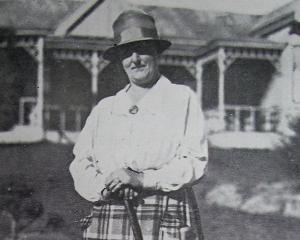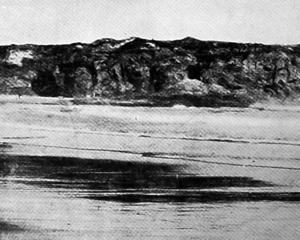
One of these returns affords particulars of the age and height, as revealed by medical classification, of the men summoned under the first seven ballots held in accordance with the provisions of the Military Service Act.
As has been observed at Home, where the physical characteristics of the members of the Australian and New Zealand forces have been contrasted, the Australian soldier has generally been taller and leaner than the New Zealander. In this the influence of climate may be said to be largely apparent.
If we accept the men who, having been called up in the first seven military ballots, underwent medical examination as fairly representative of the manhood of the dominion, we must take it that the height of the majority of the New Zealand males of military age ranges between 5ft 5in and 5ft 10in. This would no doubt confirm the general impression on the subject.
The figures suggest that there are twice as many tall men of military age in New Zealand as there are short men, and that the most common height is 5ft 7in to 5ft 8in, with a well-marked and gradual scale both of ascent to and descent from that figure.
Too many rejects
A return analysing the results of the medical examination of reservists drawn in the ballot up to the 30th June last - a return of more recent date than that with reference to the first seven ballots - shows that 313 reservists out of a total number of 40,773 who were examined were rejected because they were under the required height and that eight were rejected because they were over height.
This was a distinctly small proportion of rejections for these causes, but the fact that not more than 15,576 out of the total of 40,773 were classed as fit for active service beyond the seas is not one upon which the dominion may be congratulated.
The principal causes of the rejection of reservists were valvular and other diseases of the hearts, defects of the lower extremities, defective vision, flat feet, hernia, and diseases of the veins. It is satisfactory to observe that there were only 90 cases in which ''alcoholic''diseases led to the rejection of reservists, and the proportion of rejections due to syphilis (97) and to other venereal diseases (52) was not especially high.
Facts and comment
''You may comment as strongly and as often as you like on a public man,'' said Mr Justice Chapman during his summing up in a libel action on Monday (states the Christchurch Press), ''but before you do so you must have facts, and make certain of your facts. Comment without facts, or with perverted facts, is no comment.''
Brave rescue
A correspondent of the Southland News states that a plucky rescue of two lads was effected on the coast off Pahia by Percy Ritchie, of Orepuki, on the 17th inst. The boys were in imminent danger when Ritchie went out to them in a small open boat, which capsized in the breakers. Ritchie succeeded in righting the boat and bringing it, half-full of water, on to the rocky beach with the rescued.
- ODT, 28.2.1918.
COPIES OF PICTURE AVAILABLE FROM ODT FRONT OFFICE, LOWER STUART ST, OR WWW.OTAGOIMAGES.CO.NZ













